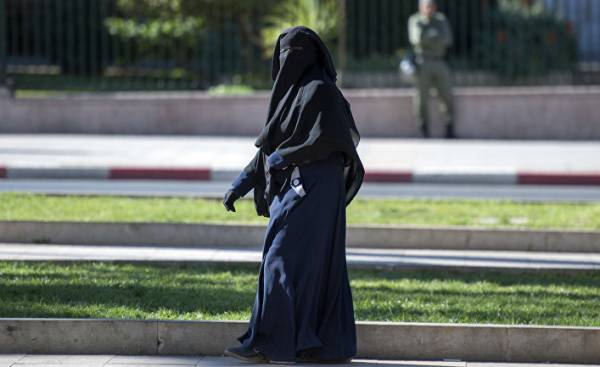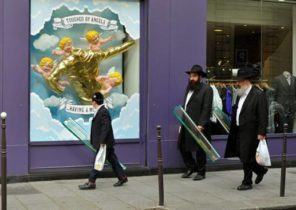
Despite years of persecution of the Church and nawiazywania authorities atheism, religion in Eastern Europe and Russia plays an important political role. This is evidenced by the results of a study by the American sociological Institute Pew conducted among 25 thousand people from 18 countries. Crucial, however, for answers to questions raised was the fact whether one or another member of the research Catholic or Orthodox. In particular, it concerned the people’s relation to Islam, democracy and the West. Thus, the majority of respondents in Belarus, Serbia, Armenia, Bulgaria and Greece called for the strengthening of Russia as a counterweight to the West.
Lately in most countries of Eastern Europe significantly increased the number of Orthodox. In Russia in 1991, about 37% of respondents admitted to belong to this faith. In 2015, the proportion reached 71%. Only about 15% said they do not belong to any religion (they are atheists or do not belong to any faith). 10% admitted that they are Muslims. In other Eastern European countries, the percentage of Orthodox Christians was even greater (78% in Ukraine, 86% in Romania).
At the same time significantly reduced the number of Catholics in Eastern Europe. In most predominantly Catholic countries, all of whom are members of the EU, their share declined. This can be said about Poland (a decline from 96% to 87%), Lithuania and Hungary (more reduction), but to a much greater extent this trend has affected the Czech Republic (decrease from 44 to 21%). In addition, in this country, and at the beginning of the “Lutheran” Estonia was the largest number (respectively, 72% to 45%) of people not tied to any particular religion.
At the same time, however, Catholics are the most devout believe in God. So, in Russia, only 6% of respondents are Orthodox at least once a week I go to Church, whereas in Poland the number of Catholics, with similar regularity of churchgoing, up to 45%. At the same time that Christianity is much stronger than Catholicism, affecting the worldview and political attitudes of believers, beginning with the assertion “Our people are not perfect, but our culture is superior to others”. Agreed with him, for example, many Greeks (89%) and Russians (69%), but “only” 55% of poles and Czechs.
Orthodox more tolerant of Muslims than Catholics
National pride, traditional ideas about the family, the condemnation of homosexuality to a much greater extent inherent in Orthodoxy. Not committed to any religion residents predominantly “Orthodox” countries have expressed this position not less frequently than believers. Noticeable, however, that people under 35 are much more liberal: 9% of young Russians expressed for the legalization of gay marriage — compared with 3% among other categories of citizens. For comparison, the same ratio in Greece was 45 to 19%.
Noteworthy is the relative high tolerance of Orthodox Muslims. So, 28% of respondents would not mind if a Muslim became a member of their family, and 68% would not mind if Muslims became the citizens of their country. Among Catholics the same figures were 15 and 43%. Accordingly, Orthodox to a greater extent than Catholics, would welcome more “diversity” in religious terms the society. This is probably due to the fact that Russians, Ukrainians and Bulgarians have a relatively large experience of living together with Muslim minorities (Tatars, Turks). Only towards the representatives of Jewish nationality among the Orthodox there is a more apparent trend towards rejection than among Catholics.
Between religion and commitment to democracy to identify a clear relationship failed. On a question, whether was would, under certain conditions, the best form of government, only 41% of Russians answered in the affirmative. Greater skepticism is noticeable only among the inhabitants of Moldova. The Serbs also showed a small “friends” of democracy. But the big “friends” of democracy was also predominantly Greek Orthodox, 77% said democracy is the best form of control.
The study of the relations of the inhabitants of Eastern European countries to NATO or the EU, the sociologists did. But indirectly about their attitudes evidenced by the answers to the question: “do we Need a strong Russia to balance the influence of the West?” Him more than 50% of inhabitants of Russia, but also citizens of some countries-members of EU (Greece and Bulgaria) answered in the affirmative. However, this question allowed multiple answers. Therefore, more than 50% of Greeks, for example, spoke for the “close cooperation” with America and the West.
The study was able to identify a large number of adherents in Russia as a “protector” of Orthodox Christians abroad. Definitely “Pro-Western” has proven to be the most Orthodox Ukrainians (probably due to the current war with Russia), as well as residents of Romania and Georgia. There is dominated by traditional ideas about the values (though in some countries it is also a relatively large skepticism about democracy as form of government). Many of the Orthodox peoples have expressed for a “strong Russia” as a counterweight to the West: first and foremost, Russians, and Belarusians, Serbs, and Armenians living in the EU, Bulgarians and Greeks.







